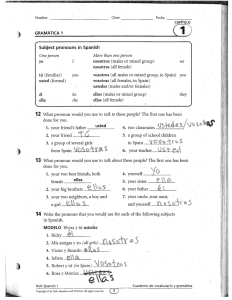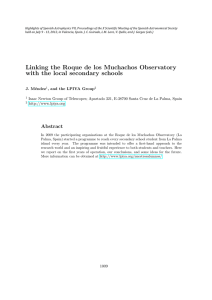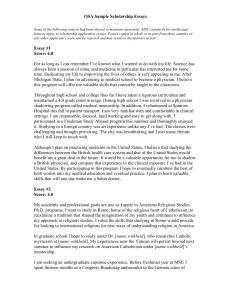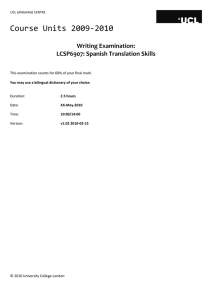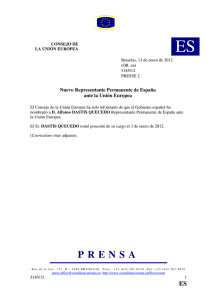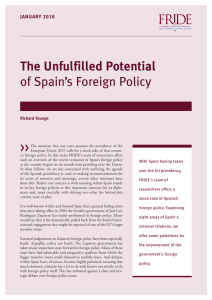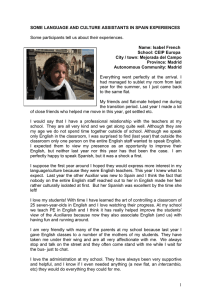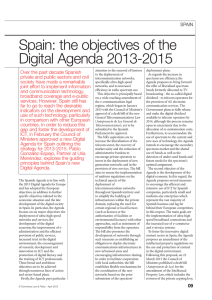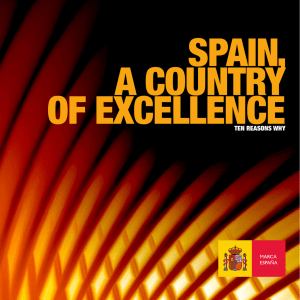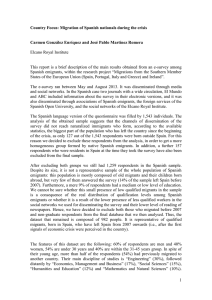British and Spanish society
Anuncio
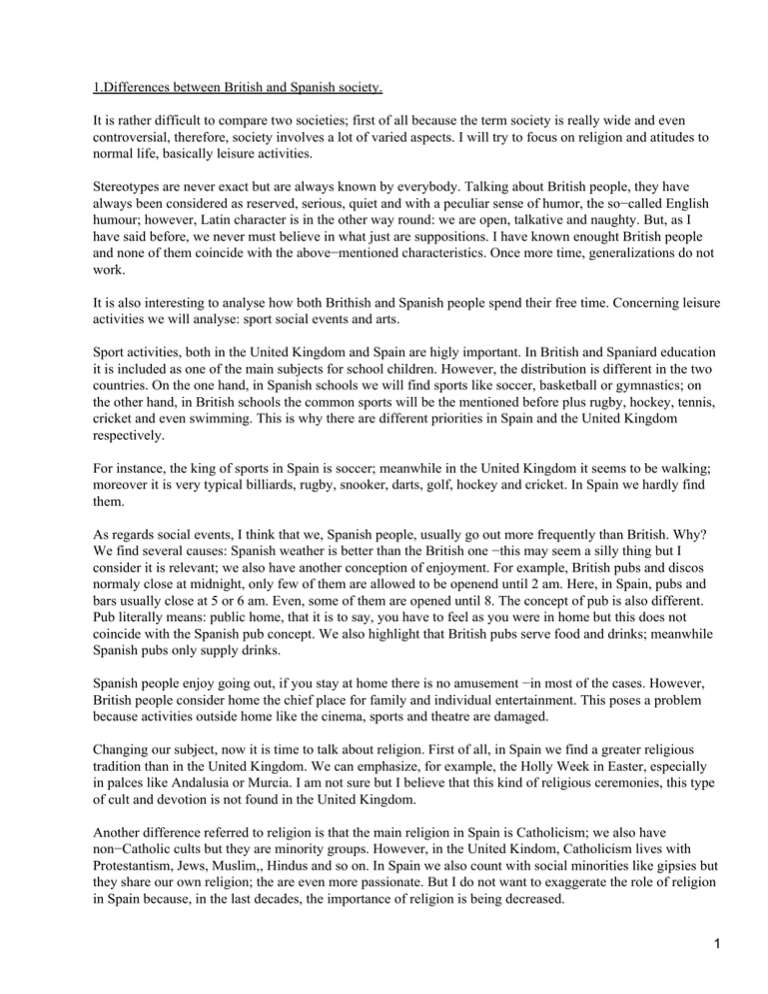
1.Differences between British and Spanish society. It is rather difficult to compare two societies; first of all because the term society is really wide and even controversial, therefore, society involves a lot of varied aspects. I will try to focus on religion and atitudes to normal life, basically leisure activities. Stereotypes are never exact but are always known by everybody. Talking about British people, they have always been considered as reserved, serious, quiet and with a peculiar sense of humor, the so−called English humour; however, Latin character is in the other way round: we are open, talkative and naughty. But, as I have said before, we never must believe in what just are suppositions. I have known enought British people and none of them coincide with the above−mentioned characteristics. Once more time, generalizations do not work. It is also interesting to analyse how both Brithish and Spanish people spend their free time. Concerning leisure activities we will analyse: sport social events and arts. Sport activities, both in the United Kingdom and Spain are higly important. In British and Spaniard education it is included as one of the main subjects for school children. However, the distribution is different in the two countries. On the one hand, in Spanish schools we will find sports like soccer, basketball or gymnastics; on the other hand, in British schools the common sports will be the mentioned before plus rugby, hockey, tennis, cricket and even swimming. This is why there are different priorities in Spain and the United Kingdom respectively. For instance, the king of sports in Spain is soccer; meanwhile in the United Kingdom it seems to be walking; moreover it is very typical billiards, rugby, snooker, darts, golf, hockey and cricket. In Spain we hardly find them. As regards social events, I think that we, Spanish people, usually go out more frequently than British. Why? We find several causes: Spanish weather is better than the British one −this may seem a silly thing but I consider it is relevant; we also have another conception of enjoyment. For example, British pubs and discos normaly close at midnight, only few of them are allowed to be openend until 2 am. Here, in Spain, pubs and bars usually close at 5 or 6 am. Even, some of them are opened until 8. The concept of pub is also different. Pub literally means: public home, that it is to say, you have to feel as you were in home but this does not coincide with the Spanish pub concept. We also highlight that British pubs serve food and drinks; meanwhile Spanish pubs only supply drinks. Spanish people enjoy going out, if you stay at home there is no amusement −in most of the cases. However, British people consider home the chief place for family and individual entertainment. This poses a problem because activities outside home like the cinema, sports and theatre are damaged. Changing our subject, now it is time to talk about religion. First of all, in Spain we find a greater religious tradition than in the United Kingdom. We can emphasize, for example, the Holly Week in Easter, especially in palces like Andalusia or Murcia. I am not sure but I believe that this kind of religious ceremonies, this type of cult and devotion is not found in the United Kingdom. Another difference referred to religion is that the main religion in Spain is Catholicism; we also have non−Catholic cults but they are minority groups. However, in the United Kindom, Catholicism lives with Protestantism, Jews, Muslim,, Hindus and so on. In Spain we also count with social minorities like gipsies but they share our own religion; the are even more passionate. But I do not want to exaggerate the role of religion in Spain because, in the last decades, the importance of religion is being decreased. 1 We have compared British and Spanish society in general terms and found many differences but this will happen in every society because every society is full of connotations, customs which will always genuine and never be corrupted. The important thing is to accept every custom and be respectful. Maybe this is utopic −we only have to observe the multiple wars all around the world− but, anyway, I like to think in it. 2. BIBLIOGRAPHY AUTORES VARIOS, (1982), Gran Enciclopedia Larousse. Tomo 11, Ed. Planeta, Barcelona, 1997. SEVERAL AUTHORS, (1768), Encyclopaedia Britannica. Volume 28, Encyclopaedia Britannica Inc., Chicago, 1992. TURNER, Graeme, (1990), British cultural studies. An Introduction, Routledge, London, 1992. 3 2
